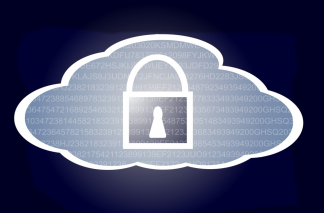Increase in implementation of cloud by government and private organizations to improve efficiency and save costs made it the prime target for cyber-criminals. However, taking security measures can enable smooth functioning of cloud and provide many benefits.
by Pratik Kirve, Team Lead – Content Writing, Allied Market Research
It will be strange to learn that an organization, whether it be private or government, is not operating on the cloud in one way or the other in 2022. Why? Because, technological advancements and benefits in terms of cost and efficiency led organizations to shift their resources, operations, storage, and majority of functions on the cloud. Cloud implementation also saves a lot of space needed for physical servers. However, privacy and security issues related to the cloud become a major concern as hackers and cyber criminals eye for vulnerabilities and exploit them in every way possible. There are number of reasons that lead to increase in cyber-attacks on the cloud. Let us have a look at them:

-
Surge in utilization of cloud services
According to Cisco, nearly 94% organizations across the world utilize cloud services in one way or the other. This statistic shows how cloud has emerged as a viable option for organizations from the past few years. It also highlights that the cloud computing will get even bigger year by year. The data storage on the cloud is estimated to amount to 100 zettabytes by 2025, according to the article published in Cybercrime Magazine by the firm Cybersecurity Ventures. The firm also highlighted that this amount will represent nearly half of the total data generated at that time. With huge amount of data and operations moving to the cloud, it is obvious that attention of cyber criminals will turn toward exploiting vulnerabilities and posing different types of threats.
-
Replacement of traditional VMs with cloud containers
The replacement of traditional virtual machines (VMs) with cloud containers is one of the major reasons for surge in cyber-attacks on the cloud. Instead of utilizing in-house physical servers and containers, many enterprises are choosing cloud servers and containers for carrying out storage, operations, and other functionalities for saving costs, increasing efficiency, and enabling smooth operations. The speed and simplicity provided by cloud containers made enterprises prefer them for cloud deployments. Traditional VMs can be replaced with cloud containers. However, many security lapses can be incurred during the deployment or replacements. There are high or critical security vulnerabilities in nearly 75% of images in cloud containers, according to the report by Sysdig. With such huge vulnerabilities, the cyber-attacks on the cloud are on the rise.
-
Adoption of remote working culture
Another major reason that emerged for surge in attacks on the cloud is rise in adoption of remote working. Very few organizations adopted this culture before the Covid-19 pandemic. However, the outbreak of the pandemic became the primary factor for a considerable rise in implementation of remote working or work from home culture in organizations across the world. According to the survey by Gartner, nearly 88% of the total organizations across the globe provided remote working option to cope up with the pandemic. Organization have found that there are many benefits such as lowered operating cost and improved productivity with remote working facility. CoSo Cloud survey highlighted that there was 77% increase in productivity of employees with remote working. The trend of remote working persisted post-pandemic. Nearly 16% of organization adopted fully-remote mode of operation, according to Owl Labs. Though this number is less, it will increase considerably in the coming years. The cloud is the most feasible option for ensuring the smooth operation in the remote working culture. This shows that the cloud adoption will increase as more and more organizations adopt fully-remote culture. It will make the cloud platforms a target for attacks as cyber-criminals will try to exploit vulnerabilities and pose different types of threats.
These major reasons will increase the need for cloud security. Various cloud security measures will be implemented by organizations to strengthen the safety of data, ensure seamless operations, and improve cost-efficiency. The demand for innovative and strict cloud security measures will increase in the coming years. According to the report published by Allied Market Research, the global cloud security market is estimated grow considerably in the next few years, owing to rise in demand for managed security services and surge in dependence on cloud-based services.
Let us now look at major types of cyber-attacks on the cloud and how they can be prevented:
-
Prevention of data breaches
Data breach is one of the major ways hackers are attacking the cloud. The huge data breach shook LinkedIn in 2012. More than 100 million users were affected. Their usernames and passwords were stolen and put on the internet black market for sale. Similarly, Yahoo reported that nearly 500 million users were affected due to data breach in 2014. This is the result of improper access management and the losses may be irreparable. The simple solution is to introduce multi-factor authentication. Social media companies such as Facebook began this practice. Nearly every social media, banking, and other organizations began implementation of two-factor authentication. Yahoo introduced Yahoo Account Key that eliminated the requirement of password and surged the protection measures.
Organizations need to ensure that that they have a specific access management layout. This implies that the marketing department in the organization does not have an access to the finance department credentials and protocols. This layout will help in ensuring the proper management of access points. Another way to avoid the data breach is to put firewall restrictions in place. This firewall will allow the authorized personnel only and detect the suspicious activities. It is not necessary that the threats will be made from outside sources only. The existing or former employees, partners, and contractors can utilize their ability to carry out various activities such as data loss, data breaches, credential leakage, system downtime, and others. Organizations need to provide access of critical systems to employees based on trustworthiness and accountability. Moreover, misconfigured cloud systems must be fixed on priority. Regular analysis for providing authorization and validation to certain personnel should be conducted. This will prevent data and financial losses. Moreover, it will maintain the credibility among your customers for keeping their data and information safe from potential threats.
-
Ensuring proper security of APIs
Application programming interfaces (APIs) allow two applications to connect, interact, and transmit data. These APIs provide an access of software platforms to third parties. Owing to weak authentication at the gateways of these APIs, the sensitive data may become vulnerable to hackers. Many hackers are always focused on exploiting APIs and steal the user data. In June 2021, LinkedIn reported that its APIs were utilized to steal the data of nearly 500 million users. The data was put on dark web for sale. For prevention of such leaks, cloud security providers must ensure that there is an integrated security. Moreover, there must be proper management, monitoring, and security of “front door” of the cloud. There should be avoidance of reuse of API key along with the usage of standard and open API frameworks. The utility programs that override the network, systems, and applications must be restricted. The access to APIs must be segregated and the access to specific users needs to be provided for preventing data tampering and disclosure.
-
Awareness and prevention of denial-of-service attacks
Though scalability is one of the crucial benefits of the cloud, it may become a liability if the cloud system is overloaded and stops its operation. This may become one of the crucial cloud security risks. Many hackers are not trying to gain access to the system, but trying to stop the working of the system. This will frustrate users as they will not be able to utilize the system. This type of attack is known as denial-of-service attack (DoS) and it disrupts the workflow. Sony’s online PlayStation store was attacked in a similar manner in 2014. The brute force attack was utilized in this hack attempt and the online store was down for nearly a day. Many organizations that have their workloads on the cloud will be attacked in the same way to stop their daily operations.
Such DoS attacks can be prevented in various ways including updating intrusion detection systems, blocking IP addresses, and firewall traffic inspection. The system must be able to determine anomalies when users try to access the system and early warning needs to be provided. On the basis of anomalies in credentials and behavioral aspects, the system can provide early alarm to ensure cloud security. Moreover, the suspicious IP addresses should be blocked. Security teams can also inspect the incoming traffic. The source and destination of incoming traffic can be inspected and firewall can be placed by differentiating the good and bad traffic.
Such security measures can be taken to prevent the cloud systems from hackers and cyber-criminals. The cloud adoption will surely increase in the next years and the need to deploy stringent security measures to prevent different types of attacks will rise consequently. With increased awareness, competent security teams, and advanced tools at hand, organizations can ward off attacks and ensure smooth functioning of cloud systems.
About the Author
 Pratik Kirve is writer, blogger, and sport enthusiast. He holds a bachelor degree in Electronics and Telecommunication Engineering, and is currently working as a Team Lead – Content Writing at Allied Market Research. He has an avid interest in writing across different verticals. When he is not following the updates and trends, he spends his time reading, writing poetry, and playing football. He can be reached on LinkedIn and email [email protected].
Pratik Kirve is writer, blogger, and sport enthusiast. He holds a bachelor degree in Electronics and Telecommunication Engineering, and is currently working as a Team Lead – Content Writing at Allied Market Research. He has an avid interest in writing across different verticals. When he is not following the updates and trends, he spends his time reading, writing poetry, and playing football. He can be reached on LinkedIn and email [email protected].

